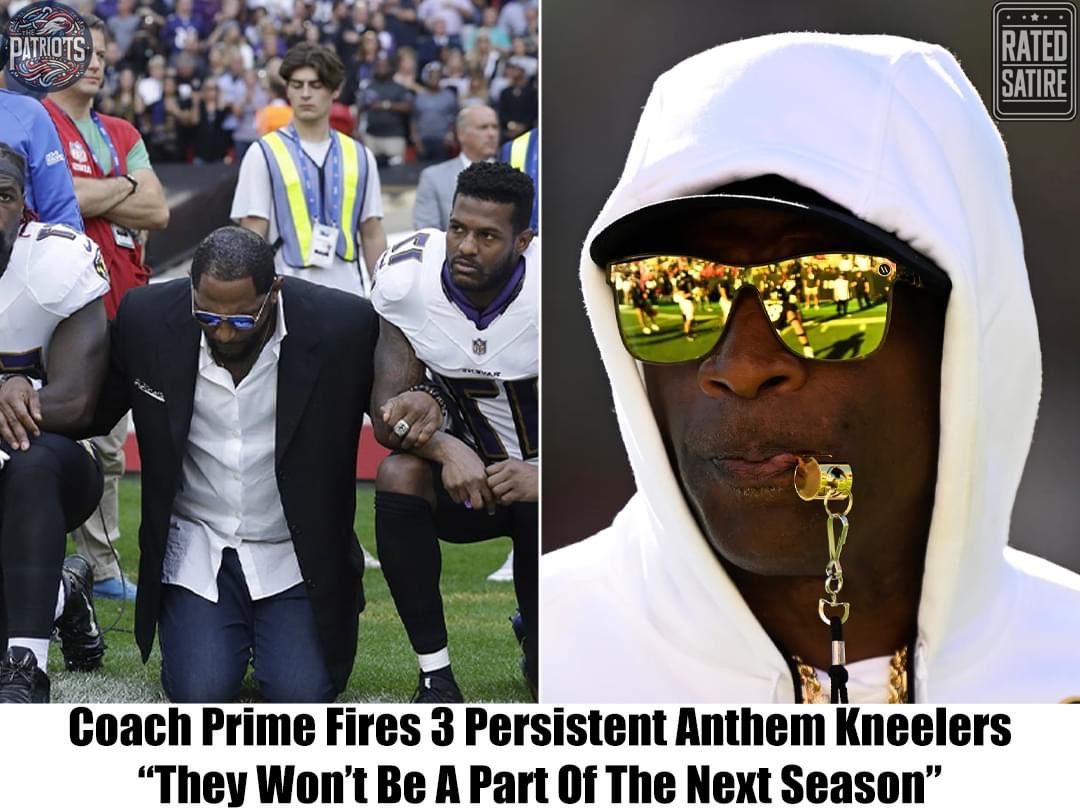Coach Prime’s Anthem Stance: A Debate on Unity and Personal Protest in Football
In football, where tackles and touchdowns usually take center stage, Coach Prime sparked debate by benching three players who kneeled during the anthem, insisting they “Stand For The Flag.” Known for his strict discipline and dedication, Coach Prime believes that standing during the anthem symbolizes team and national unity. Critics, however, argue that this stance suppresses the athletes’ right to protest against racial injustice and police brutality.
The decision has polarized fans, highlighting the ongoing tension between collective identity and individual expression. It raises crucial questions about the balance between respecting the flag and allowing personal protest, urging a deeper conversation on the role of athletes in social activism.
The Case for Unity
Coach Prime’s insistence on standing for the anthem stems from a belief in the power of unity and shared values. For him, the anthem is a moment of collective respect and solidarity, not just within the team but also with the nation they represent. In his view, standing together reinforces a sense of belonging and common purpose, crucial elements for team cohesion and morale.

The Right to Protest
On the other side of the debate, critics emphasize the importance of athletes using their platforms to advocate for social change. Kneeling during the anthem, popularized by Colin Kaepernick, has become a powerful symbol of protest against systemic racism and police brutality. By benching players who kneel, Coach Prime is seen by some as stifling their voices and ignoring the critical issues they are trying to highlight.
Polarized Reactions
The reactions from fans have been mixed. Some support Coach Prime’s decision, agreeing that sports should be a unifying force and that the anthem should be a moment of respect. Others believe that the right to peaceful protest is fundamental and that athletes should not be penalized for expressing their views on important social issues. This division among fans reflects broader societal debates about patriotism, free speech, and the role of public figures in activism.
Balancing Respect and Protest
The controversy raises essential questions about how to balance respect for national symbols with the right to protest. Is it possible to honor the flag and what it represents while also acknowledging and addressing the injustices faced by marginalized communities? Can a middle ground be found that respects both the collective identity of a team and the individual expressions of its members?
A Call for Deeper Conversation
This incident with Coach Prime and his players serves as a call for deeper conversation on the role of athletes in social activism. It invites reflection on how sports can be a platform for unity and a catalyst for social change. By engaging in open dialogue, the sports community and society at large can better understand the complexities of this issue and work towards solutions that respect both unity and individual rights.
In conclusion, Coach Prime’s decision to bench players who kneel during the anthem has ignited a significant debate about unity, personal protest, and the role of athletes in advocating for social justice. It underscores the need for ongoing dialogue and thoughtful consideration of how to balance these important values in the world of sports and beyond.





